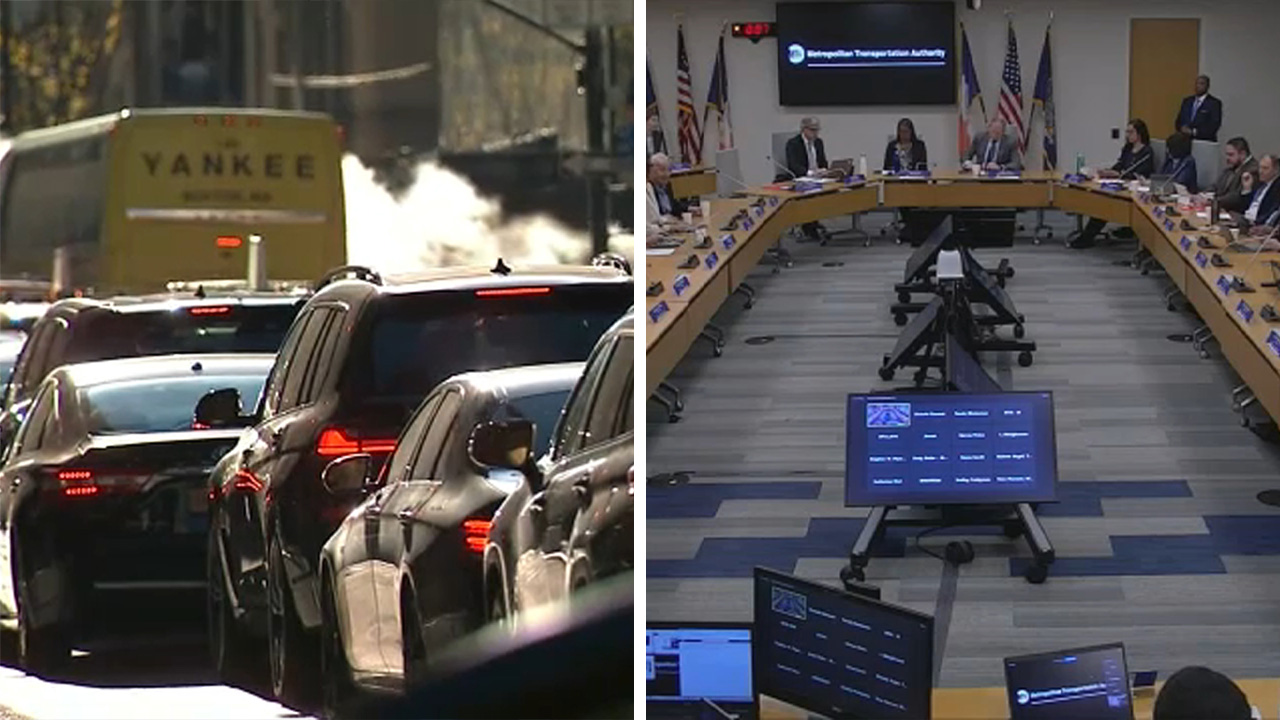New York City Congestion pricing plan FAQ
Congestion pricing tolls in New York City are set to begin on June 30, 2024

NEW YORK CITY (WABC) -- New York City could become the first U.S. city with congestion tolls on drivers as early as this summer.
Transit officials approved the congestion pricing plan that would charge a $15 fee for most drivers entering the busiest part of Manhattan, south of 60th Street during daytime hours.
When does congestion pricing start?
Congestion pricing tolls are set to begin early in the morning of June 30.
How much will drivers be charged?
The final tolling structure is based on recommendations by the advisory panel:
Most passenger vehicles and passenger-type vehicles with commercial license plates would be charged a $15 toll during the peak period (5 a.m. to 9 p.m. on weekdays and 9 a.m. to 9 p.m. on weekends), and $3.75 overnight. Those vehicles would be charged only once a day.
Trucks and buses would be charged a $24 or $36 toll in the peak period, depending on their size and purpose. Overnight tolls would be $6 and $8
Motorcycles would be charged $7.50, no more than once per day
Passengers would be charged a toll of $1.25 per trip for taxis, green cabs, and for-hire vehicles, and $2.50 per trip for trips dispatched by high-volume for-hire services such as Uber and Lyft. There would be no nighttime discounts.
Qualifying authorized emergency vehicles, qualifying vehicles transporting a person with disabilities, specialized government vehicles, and transit and commuter buses would be exempted from the CBD toll
Low-income vehicle owners who qualify and register with MTA would receive a 50% discount on the peak auto toll beginning with the 11th trip taken in a calendar month
How do you pay the toll?
Customers can pay using E-ZPass or through Tolls by Mail, whereby an image is taken of their license plate and a bill is sent in the mail to the vehicle's registered owner
Visitors without E-ZPasses will pay more.
Taxis will charge passengers $1.25 per trip that touches the zone, while app-based rides will charge $2.50.
What are the congestion pricing hours?
Peak toll rates would apply from 5 a.m. to 9 p.m. on weekdays, and from 9 a.m. to 9 p.m. on weekends.
Toll rates would be 75% lower overnight The overnight period runs from 9 p.m. to 5 a.m. on weekdays, and from 9 p.m. to 9 a.m. on weekends.
Are there exemptions or discounts?
Some exceptions include:
Emergency vehicles, specialized city vehicles, and buses with regular public routes or city school contracts.
Vehicles carrying disabled people and certain low-income commuters.
Low-income drivers are eligible for discounts and tax credits.
The $1 billion in toll revenue mandated by the state law meant that eliminating charges for one group would increase the price for everyone else, so most requests for exceptions weren't granted.
Why congestion pricing?
Supporters of the new tolls say it will push more people to use public transport, reduce congestion to speed up public buses and emergency vehicles, reduce pollution, and raise money needed to improve the subway system.
After paying for the cost of the program, 80% of the money will be used to improve and modernize New York City Transit, which runs the subways and buses; 10% for Long Island Rail Road; and 10% for Metro-North Railroad
Who opposes congestion pricing?
A recent Siena College survey found that 64% of people in New York oppose the $15 toll to drive below 60th Street in Manhattan. Opponents say the fees are a burden on workers and will increase the prices of staple goods that are driven to the city by truck. New York's plan has drawn lawsuits from small business owners and the state of New Jersey which demand more thorough environmental assessments before the plan moves forward. In court documents, state officials argue the plan will cost its commuters millions but won't fund improvements in New Jersey transit agencies, even as it funds public transit in New York and Connecticut.
How did we get here?
The state Legislature approved the tolls in 2019, mandating that the program should raise $1 billion per year to fund public subway and bus systems for the city's 4 million daily riders. It also established the boundaries of the zone, which covers the busiest part of the city, and scaled back early proposals to include the area up to 86th Street. The pandemic and lack of federal regulation stalled the project.
If the plan survives legal challenges, New York City will become the first U.S. city to implement congestion pricing. Such schemes have been implemented in London, Stockholm, Milan and Singapore.
MORE: MTA officially approves congestion pricing tolling plan for NYC

You can learn more about the plan on the MTA's congestion pricing program website.






